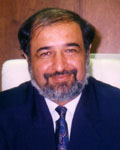Asian oil/gas markets in a global context—fear, hope and recovery outlook
Fereidun FesharakiChairman and Chief Executive Officer, FACTS Global Energy
The APPEA Journal 49(3) - https://doi.org/10.1071/AJ08085
Published: 30 June 2009
Abstract
The global financial crisis has significantly weakened oil demand. Although China and India are still adding demand, the oil demand in Asia is being battered in 2009. Asia as a whole will be in negative territory. The negative demand environment combined with the long expected excess refining capacity is resulting in major weaknesses in product prices and refining margins.
On the global front, OPEC’s production cutbacks have saved the oil markets from dramatic collapse, leading slowly to price recovery as inventories are drawn down. Within a three-to five-year horizon it is felt that the price of oil will be in the range of US$75–90 a barrel. While the upstream recovers, the downstream will continue to struggle on a global basis and Asia will witness many years of excess capacity.
The recovery of oil demand is certain, but the huge excess production capacity being built this year in OPEC to the tune of 6–7 million BOPD, will ensure a slow price recovery as excess capacity is brought back on the market.
Australia is a net importer of petroleum products and the country’s demand is expected to continue to grow modestly into the future. As a result, Australia has to either expand its refining capacity or increase its product imports to meet the deficits.
The Australian refining sector is a major contributor to the nation’s economy and it supplies more than 80% of Australia’s petroleum product requirements. Refiners continue to face challenges of volatile regional environment, changing fuel needs, and fierce import competition.
More recently, anxiety is also emerging among some refiners about the impact of the proposed emissions trading scheme. Further restructuring of the sector is likely if the present positive returns on investments are not maintained.
On the gas front, the situation is even more complicated. Declining gas prices in the US, followed by a collapse in rig counts, may lead to a rebound in 2010. While European prices are partially impacted by the US prices, Asian prices are still heavily crude related. A huge volume of LNG will enter the market in late 2009 and early 2010, while demand is to be severely curtailed. Buyers hope for the return of the buyer’s market, while the sellers are confident that tight markets will come back if they just hold onto the higher slopes.
Key to the gas market is the policy of Qatar, now the largest LNG exporter in the world. There is a large amount of unsold LNG in Qatar, although volumes are committed to the terminals in the US and Europe. The vast majority of this gas can be diverted to the East if the price is right. High prices and slopes in Qatar have given Australian producers the chance to market the LNG at slightly lower slopes than the Qataris.
Are the oil and gas markets converging or diverging? Are the different regional gas markets converging or diverging, and what are the future prospects for these markets impacting each other and in which direction?

Dr Fereidun Fesharaki is the Chairman of FACTS Global Energy. Fesharaki’s work is well recognised worldwide for pioneering oil and gas market analysis and studies of the Asia-Pacific and Middle East energy markets since the early 1980s. Born in Iran, he received his PhD in economics from the University of Surrey in England. He then completed a Visiting Fellowship at Harvard University’s Center for Middle Eastern Studies. In the late 1970s, he attended the OPEC Ministerial Conferences in his capacity as energy adviser to the Prime Minister of Iran. He is a Senior Fellow at the East-West Center, where he heads the energy-related research. He joined the East-West Center in 1979. Fesharaki is the author of more than 70 papers and has authored or edited over twenty three books and monographs. He serves on the editorial boards of many journals, including: Energy Economics; Energy Policy; Energy—The International Journal; Geopolitics of Energy; Hydrocarbon Asia; and Journal of Energy Finance and Development. Fesharaki was the 1993 President of the International Association for Energy Economics (IAEE), the key professional organisation representing over 3,000 energy economists in more than 70 countries. In 1989, Fesharaki was elected a member of the Council on Foreign Relations in New York. Since 1991, he has been a member of the International Advisory Board of Nippon Oil—Japan’s largest oil company. Fesharaki is also a member of the Pacific Council on International Policy. In 1995, Dr. Fesharaki was elected as a Senior Fellow of the US Association for Energy Economics for distinguished services in the field of energy economics. In 1998, Dr. Fesharaki joined the Board of Directors of the American-Iranian Council. In 2002, Dr. Fesharaki was appointed a senior associate of Center for Strategic and International Studies (CSIS) in Washington, DC, and in 2008, Fesharaki was appointed a member of the National Petroleum Council by the US Secretary of Energy. |


